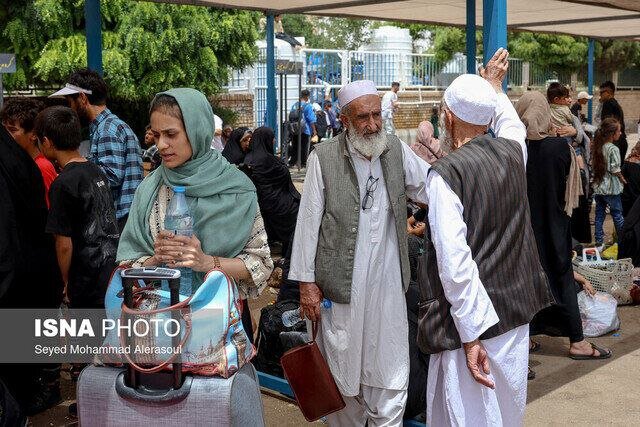Tehran hosts core group meeting of Solution Strategy for Afghan Refugees

TEHRAN – A meeting of the local core group of Solution Strategy for Afghan Refugees (SSAR) was held in Tehran on Wednesday, September 3.
The head of the National Organization for Migration, Nader Yar-Ahmadi, in cooperation with the Director-General for International Environmental and Sustainable Development Affairs of the Ministry of Foreign Affairs, Mohammad Hassani Nejad Pirkouhi, co-chaired the meeting, ISNA reported.
Dutch Chargé d’affaires to Iran, as the head of SSAR group; Stefan Priesner, UN Resident Coordinator in Iran; and representatives from different international institutions including the United Nations Children’s Fund (UNICEF), United Nations High Commissioners for Refugees (UNHCR), International Organization for Migration, United Nations Development Program (UNDP), the World Health Organization (WHO), as well as representatives from the embassies of Germany, Italy, Netherlands, Turkey, Switzerland, Denmark, and South Korea participated in the meeting as the members of SSAR.
Addressing the meeting, Yar-Ahmadi said Iran has hosted Afghan refugees for almost five decades, including the massive wave of Afghan migration into the country in recent years. However, the contribution of the international community, Western countries, and SSAR member states has been inadequate and ineffective.
For his turn, Hassani Nejad Pirkouhi highlighted the country’s unparalleled humanitarian measures, particularly in hosting refugees, saying that the international community, including European countries, has failed to fulfil their international commitments and responsibilities under international refugee law. They have negatively affected the conditions by adopting political and selective approaches, as well as imposing unilateral sanctions and coercive measures against the government and people of Iran.
The representative of international organizations, like the UN resident representative, elaborated on outstanding actions taken by the country in dealing with the large number of refugees who are residing in Iran.
During the meeting, the UNHCR representative proposed holding trilateral talks with Iran and Afghanistan. The Iranian officials voiced the country’s readiness to hold quadrilateral talks with the presence of Pakistan, stressing that the trilateral talks would require greater coordination.
The Solutions Strategy for Afghan Refugees (SSAR) was drafted in 2012 by Afghanistan, Iran, and Pakistan, with the support of UNHCR. The strategy advances a regional approach to solutions and promotes burden and responsibility-sharing for refugees at the regional and global levels.
The SSAR emphasizes enhancing the resilience of Afghan refugees and their co-existence with host communities and advocating for greater and more equitable responsibility-sharing by the international community – in line with the Global Compact on Refugees (GCR). As such, it remains to date as a regional blueprint for governments, international organizations, and other stakeholders to ensure that host communities get the support they need and that refugees can lead productive lives.
In Iran, in line with the deliberations of the Inaugural Meeting of the Core Group with the Governments of Afghanistan, Iran, and Pakistan, a Local Core Group for the SSAR Support Platform was established in April 2021. Core Group Ambassadors and Resident Representatives in Iran met in 2021 to launch the initiative and discuss priority areas of support to Iran, as part of the key objective to assist refugee host countries under the SSAR Platform.
In 2022, UNHCR organized a virtual SSAR Support Platform meeting, chaired by the European Union, in the presence of Core Group members and other donors, UN Agencies, INGOs, and the Government of Iran, to better identify the needs of refugees, asylum-seekers, and host communities.
At the end of 2022, Iran hosted the 8th meeting of the SSAR Quadripartite Steering Committee to discuss progress, challenges, and the way forward in the implementation of the Solutions Strategy for Afghan Refugees, highlighting Iran’s generous and inclusive hospitality towards Afghan nationals over the years.
In 2024, the Group focused its efforts on maintaining and expanding the protection and asylum space for all Afghans in Iran, as well as further strengthening the inclusive policies and promoting self-reliance and durable solutions.
MT/MG
Leave a Comment